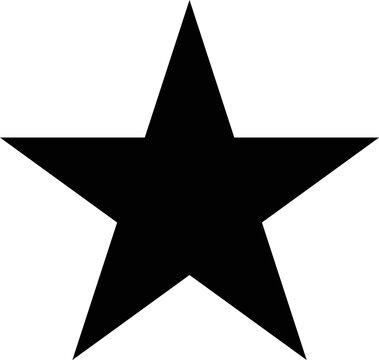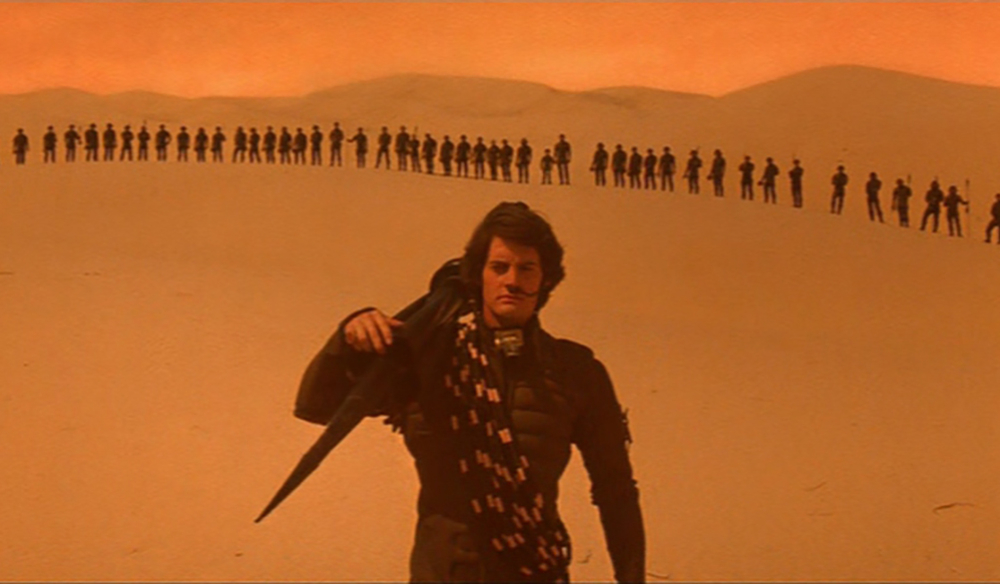Dune (1983)

September 17, 2023

In the 1983 Dune, we get David Lynch's vision of Arrakis paired with his signature flair of surrealism. Unfortunately, much of the effort falls flat. Too often, the script approaches Herbert's subtlety with the grace of hammer on anvil, smashing out points of characterization and plot development that should be left to the paintings of our own imaginations. Beyond the heavy-handed writing, many actors deliver their lines with a range spanning comic overacting to jarring rigidity. Sadly, none of this is assisted by the underwhelming score provided by Toto. Lynch's use of inner monologue was a valiant attempt to imbue the leagues of off-page depth that Herbert achieves, and at times, can be seen to work effectively. However, overall, the film fails in the ambitious task of taking on the epic of Dune.
There is not much to be said for the movie's opening chapters as it dutifully and dryly delivers the sequences of its source material. However, it does offer a select few stark deviations that may be held in contempt by devout fans of the novel. The obvious being found in the age of our protagonist, Paul. While some may remain understandably hung up here, this is a point I aim to look past in movie adaptations, as some of the best we have seen have stood as interpretations rather than replications. To this, the standout performance in the film's first hour must be Lynch's universe. Through all the faults, Lynch still masterfully gives our imaginations instantiations of Caladan, the Imperial Court, the Guild, Gedi Prime, and Arrakis that carry on the excitement and wonder first set forth onto paper by Herbert.
After enduring over an hour of stale performances and hurried scenes, we get the film's first captivating sequence. Paul and Jessica's open desert traversal properly acquaints us with the awesome power of Arrakis and its terrible terrain. The scene is the Worm's moment to shine, and it does not disappoint, delivering an edge-of-your-seat race to the perimeter of open sand. However, even these moments are tempered by the movie's persistent faults. Perhaps most strikingly, how poorly the acting and cinematography have aged compared to its contemporaries such as Star Wars (a movie of which Dune's budget quadrupled).
While this sequence marked a turning in the movie's plot, unfortunately, it does not meet any hopes for its wanting delivery to reach a similar shift. As we approach the meeting of the Fremen, a moment that those who have read the book surely remember, I found myself full of anticipation. I felt an excitement I'm sure others would share to see such pivotal, tense moments be translated to the screen. Sadly, what we received was beyond disappointing. Setting the tone, Stilgar delivers his lines with a hurried, chopped pace, staggering through Herbert's delicately crafted first moments of contact with reckless abandon rivaled only by the script itself. It is also here where, unfortunately, I must take considerable exception to one of Lynch's less popular creative choices. Throughout his Dune, much of the hand-to-hand combat of the novel has been replaced with firefights. While this choice rings believably enough in the battles between the Atriedes and Harkonnen, showing a league of Fremen wielding guns cannot be seen as anything other than a gross misstep. One promising a total absence of the layered, compelling details of the Fremen and their imprint on Arrakis. Regrettably, the rest of the movie keeps to this promise, glossing over the Fremen plot points with blinding pace.
At this point, we come to the score, famously offered by the rock band Toto. It is appropriate to address here because, for the majority of the film, it remains mercifully underwhelming. However, it refuses to be ignored once we reach the movie's climactic sequences. Featuring a montage of battle scenes, explosions, worm riding, brotherly uniting, and Harkonnen forces being destroyed in what should be triumphant, awe-inspiring moments, the movie cannot help but fail in spectacular fashion, with Toto's score making a chief contribution. As the reclaiming of Arrakis was well underway, I hoped to be caught up in the victory alongside our protagonists. However, it is here that the soundtrack takes its turn ruining the experience. Its shortcomings are highlighted by over-the-top guitar riffs that push the movie further from its attempt at dramatic crescendo into undeniable corniness if not pure hilarity. To be fair, the soundtrack would be perfectly appropriate behind a dog fight scene in Top Gun. Unfortunately, our hero in this movie is not Tom Cruise playing a fighter pilot, and Toto's guitar could not feel more out of place.
No more needs to be said on the faults of Dune. After all, there are certainly merits that come from the merged visions of Herbert and Lynch. From Frank, we do still reach plot points with such inherent awe that they cannot help but shine in their film instantiations, such as the open desert and the pools of water set to change the face of a planet. And from Lynch, he is at his best in the movie's more grotesque moments. One such opportunity being Baron Harkonnen, a character which Lynch portrays as spectacularly disgusting. Further, Lynch also delivers in the movie's moments of surrealism, like with Paul taking the Water of Life and drifting in and out of reality. From the pair together, the sets that Lynch uses to portray many key backdrops penned by Herbert also work well, with the Shield Wall and the Emperor's Stronghold both being perfectly striking. Taken in its entirety, Lynch's Dune stands as a controversial attempt at adapting a seminal science fiction epic of the twentieth century, and while I won't attempt to defend it from its critics, I do feel that it has a place remaining as an important piece of Dune's legacy.